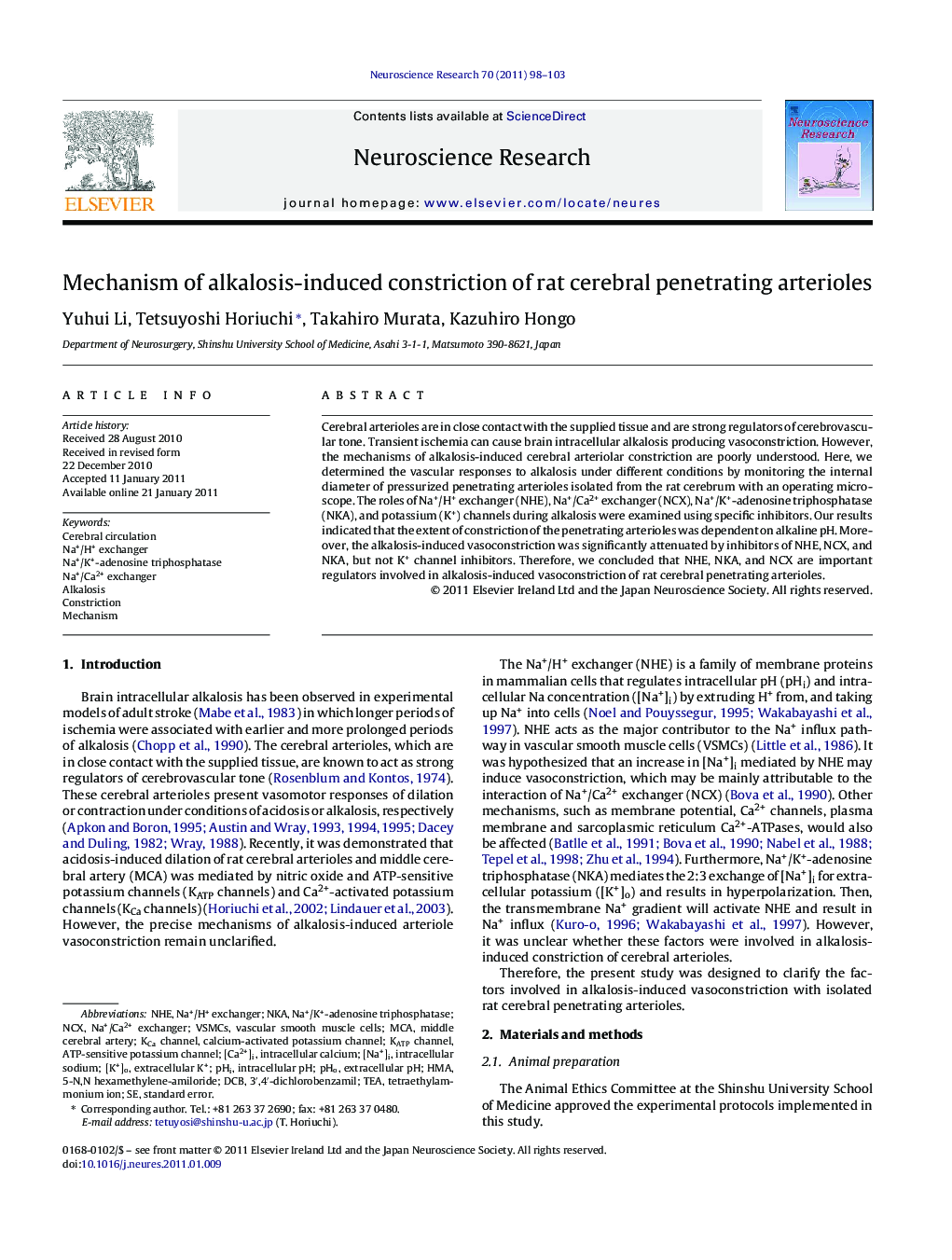| Article ID | Journal | Published Year | Pages | File Type |
|---|---|---|---|---|
| 4352283 | Neuroscience Research | 2011 | 6 Pages |
Cerebral arterioles are in close contact with the supplied tissue and are strong regulators of cerebrovascular tone. Transient ischemia can cause brain intracellular alkalosis producing vasoconstriction. However, the mechanisms of alkalosis-induced cerebral arteriolar constriction are poorly understood. Here, we determined the vascular responses to alkalosis under different conditions by monitoring the internal diameter of pressurized penetrating arterioles isolated from the rat cerebrum with an operating microscope. The roles of Na+/H+ exchanger (NHE), Na+/Ca2+ exchanger (NCX), Na+/K+-adenosine triphosphatase (NKA), and potassium (K+) channels during alkalosis were examined using specific inhibitors. Our results indicated that the extent of constriction of the penetrating arterioles was dependent on alkaline pH. Moreover, the alkalosis-induced vasoconstriction was significantly attenuated by inhibitors of NHE, NCX, and NKA, but not K+ channel inhibitors. Therefore, we concluded that NHE, NKA, and NCX are important regulators involved in alkalosis-induced vasoconstriction of rat cerebral penetrating arterioles.
Research highlights▶ The extent contraction and pHo showed a positive relationship. ▶ Constriction in response to alkalosis was mediated by NHE, NKA and NCX. ▶ Potassium channels are not involved in alkalosis-induced vasoconstriction.
